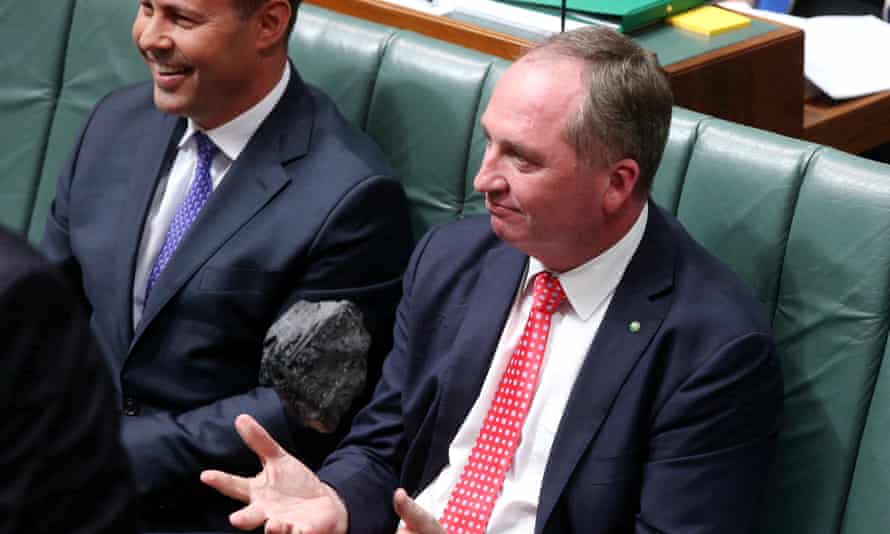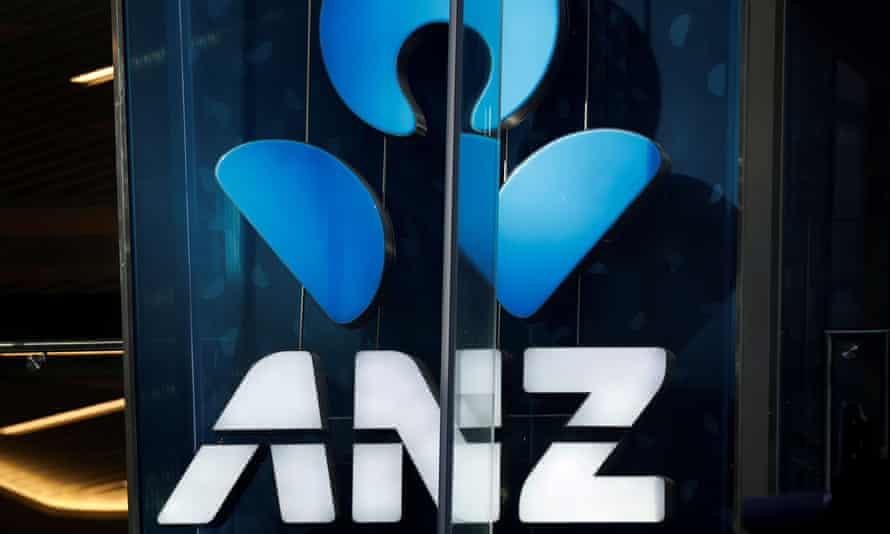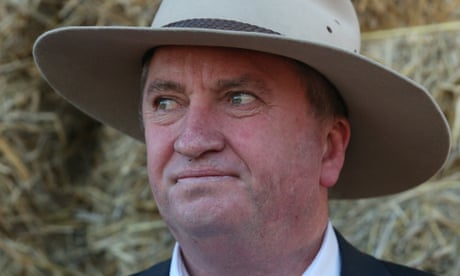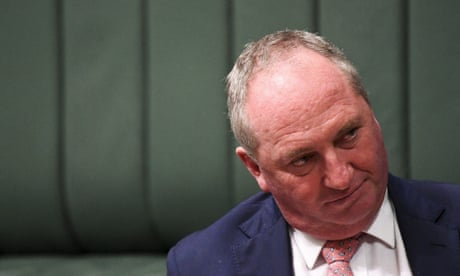Deputy prime minister also blasts banks for managing carbon risk and supports coal exports in Sky News interview.

Barnaby Joyce says Australia needs revenue from exporting coal to support social services like the health and education systems.
Last modified on Tue 29 Jun 2021 19.11 AEST
The newly returned Nationals leader and deputy prime minister Barnaby Joyce says Australia needs high-efficiency, low-emission coal power stations, as well as revenue from continuing exports of thermal coal, to bankroll social services.
While metropolitan Liberals have made it clear they will not support new coal-fired power, and the International Energy Agency has advised wealthy countries to phase out coal power plants by the end of the decade, Joyce used an interview on Sky News to champion modern coal plants, and declare he was in favour of nuclear reactors.
“We absolutely need high-efficiency, low-emission coal-fired power stations,” Joyce said, before sharing his thoughts on coal exports.
“No one likes big holes in the ground … but the point is, you like your health system, you like your education system.
“This money has to come from somewhere. From the red rocks – iron ore. From the black rocks – coal.”
The deputy prime minister also blasted Australia’s banks for managing carbon risk.
Asked by Sky host Alan Jones what he would say “to people like the governor of the Bank of England, or our own banks here – the ANZ won’t fund the port of Newcastle – and the governor of the Reserve Bank”, Joyce declared Australian banks were the recipients of government protection, and that meant there should be reciprocity.
Joyce noted Australia’s “four pillar” banking regulations – a Keating-era competition policy – prevented any merger between the major banks.
“We protect [the banks], right, we protect them from competition,” the Nationals leader told Jones.
“I think that comes with a responsibility that if something is legal and financially stands up, then you should be investing in it.”
He suggested “a lot” of banking executives “believe that they own the banks, they made the banks”.
“No. They just presented very well for an interview, which got them a job in the bank, and they don’t own it, it’s not their money and they should reflect on that and stop acting like it’s their actual money.”
Keith Pitt, the Queensland National and resources minister who lost his cabinet spot in a recent reshuffle triggered by Joyce’s return, last year demanded a parliamentary inquiry, chaired by longtime Joyce-backer George Christensen, after a climate change commitment from ANZ to step back from business customers with material thermal coal exposure.
ANZ’s market signalling last October sparked consternation within the Nationals. The agriculture minister, David Littleproud, called for a boycott of the bank, and Michael McCormack, then the deputy prime minister, declared the bank’s plan “virtue signalling”. Christensen has previously denied the link between climate change and the severity of natural disasters.
While some Nationals contend carbon risk management practices by the banks are unnecessary, Australia’s central bank has delivered clear warnings that climate change is exposing financial institutions and the financial system more broadly to risks that will rise over time if action isn’t taken.
The RBA says while climate change is not yet a significant threat to financial stability in Australia, it is becoming increasingly important for investors and institutions to actively manage carbon risk.
The banks and their lobbying arm, the Australian Banking Association, have also used new submissions to Pitt’s parliamentary inquiry to implicitly rebut claims from senior Nationals that their actions amount to moral posturing or virtue signalling.

An ANZ bank logo is in Sydney. Barnaby Joyce has blasted Australia’s banks for managing carbon risk. Photograph: Edgar Su/Reuters
The Nationals have been resisting an attempted pivot by Scott Morrison on climate policy. The prime minister says he supports Australia reaching net zero emissions as soon as possible, and “preferably” by 2050.
Even though Morrison has made it clear that any net zero commitment won’t be legislated, and the transition will include the use of gas as a transitional fuel, and the government will work to ensure regional Australia benefits from the transition by building new industries, like hydrogen – some Nationals have dug their heels in.
Joyce told Jones he was a supporter of Australia adopting nuclear power if people wanted zero-emission power generation. But he said whether the nation went down that road was ultimately a matter for voters.
“I can’t change the nuclear position,” the Nationals leader said. “I believe we should have nuclear power and, and I believe that anything to make our nation a stronger place, this is the path we should be going down, and if people want zero emissions – well, this, this is it.
“I mean, you have your wind, you can have your solar, but if you want baseline, deliverable, 24/7 zero-emission power, then nuclear does it.”
Joyce said small modular reactors could “power the city of Tamworth, the city of Armidale and a lot of other towns beside” with technology you could transport “on the back of a truck”.


No comments:
Post a Comment